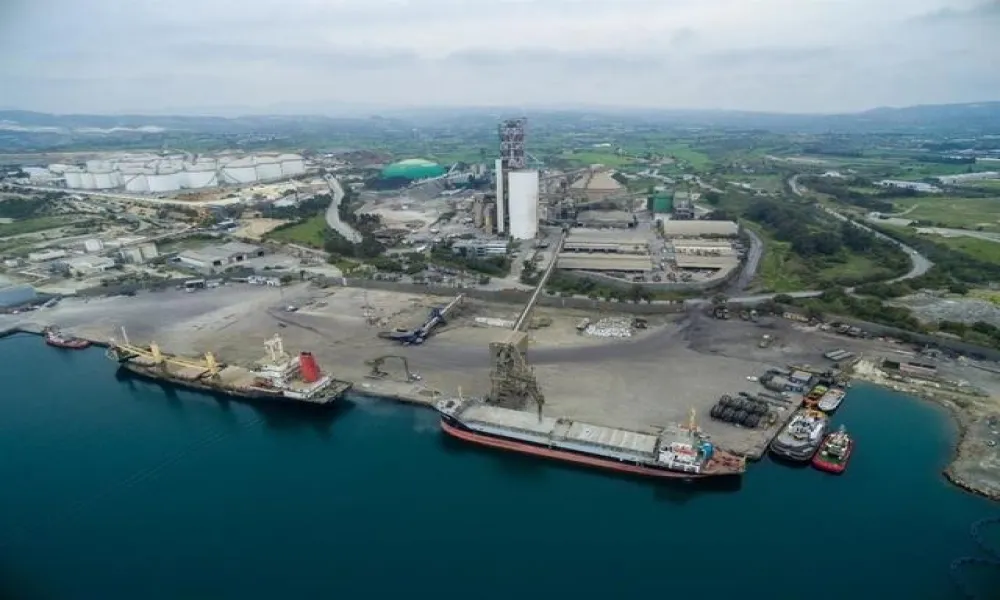The cost of developing infrastructure at Vasiliko for the import of liquefied natural gas (LNG) has ballooned by an additional €67 million, following the European Union’s decision to demand a refund of the grant it had provided for the project.
Cyprus had been allocated a total of €101 million under the “Connecting Europe Facility”, part of the EU’s Projects of Common Interest. This funding was being disbursed in stages, depending on the progress of works — which came to an abrupt halt in July 2024, after a final breakdown in relations between ETYFA (Natural Gas Infrastructure Company) and the Chinese consortium CPP.
Waiting for the President’s return from New York
The Legal Service, the Ministries of Finance and Energy, DEFA (Natural Gas Public Company), and ETYFA now face a difficult reality: deciding whether to pay the €67 million invoice issued by CINEA (European Climate, Infrastructure and Environment Executive Agency), or to take the matter to the EU courts.
The Ministry of Energy briefed the above institutions yesterday. A preliminary exchange of views took place, and legal consultations will follow. However, definitive decisions will only be made once the President returns from New York.
Meanwhile, the Presidency must navigate yet another political crisis — the result of mishandling and missteps that have left the government exposed. And all of this at a time when Cyprus is entering a pre-election period and an imminent cabinet reshuffle is expected.
Who will foot the bill?
Ultimately, it is the Cypriot taxpayer and local businesses who are being called upon to pay for the mismanagement, irregularities, and illegalities surrounding this infrastructure project. They are the victims of a 25-year-long saga of false starts and empty promises regarding the arrival of natural gas — a cheaper and greener fuel. And for years, they’ve been burdened with some of the highest electricity bills in Europe, eroding both their purchasing power and competitiveness.
The construction cost of the Vasilikos project, originally awarded to CPP in 2019 for approximately €300 million (plus another €200 million for operations), has now risen sharply — casting serious doubts over whether the project remains financially viable.
The new reality: key developments
-
The EU has officially withdrawn its €101 million grant, meaning the full cost of the €300 million project must now be borne by Cyprus’ public funds.
-
It is now widely acknowledged that CPP’s original cost estimate was unrealistic. This has further driven up expenses, mainly for three reasons:
-
There was no comprehensive design plan at the start. This has been confirmed by the project manager hired by ETYFA in May 2024, who is now conducting a thorough review to identify shortcomings, design flaws, and required new tenders.
-
CPP returned in 2021 demanding an additional €100 million, raising eyebrows at the time.
-
Delays have inflated costs, with a prime example being the floating terminal Prometheus — for which every month spent docked in Malaysia for repairs and certification adds another $367,000 to the bill.
-
-
Moreover, under the EU Green Deal — which aims for net-zero emissions by 2050 — renewables and hydrogen are set to replace fossil fuels, including natural gas. The longer Cyprus delays the gas import project, the harder it will be to recover its investment and secure any real economic or environmental benefits.
Criminal responsibility on the horizon
The EU’s scrutiny of the LNG terminal project began around 14 months ago, when the European Commission and CINEA requested details about the awarding and implementation of the contract. This investigation followed:
-
January 2024: The Audit Office released a damning report citing lack of competitive safeguards, illegalities, and irregularities in the tender (October 2018) and award process (August 2019), along with major delays and demands from the Chinese consortium.
-
March 2024: The European Public Prosecutor’s Office (EPPO) launched a criminal investigation into potential offences by ETYFA, CPP, or other involved parties.
-
July 2024: The contract between ETYFA and CPP was officially terminated. That same month, CINEA notified the Republic of Cyprus that an inquiry was underway and requested official responses.
Between July 2024 and September 2025, the Ministry of Energy and the EU exchanged two letters, with Cyprus submitting extensive explanatory notes addressing the European funding body’s points.
However, these arguments failed to convince CINEA, which upheld its demand for repayment.
The uncertain fate of Prometheus
One option that’s been on the table for some time to reduce the financial burden is leasing the Prometheus floating regasification platform to other countries in need of such infrastructure. After numerous delays, Prometheus is now nearing the final stages of repair and certification trials.
However, the funding terms of the project explicitly prohibit such leasing arrangements without the consent of both the EU and the project’s co-funders — the European Investment Bank (EIB) and the European Bank for Reconstruction and Development (EBRD). With the European Commission having already voiced its objections and exited the funding scheme, a fresh attempt is expected to seek approval from the remaining lenders.
For now, the project remains incomplete — and without a clear timeline for completion.
